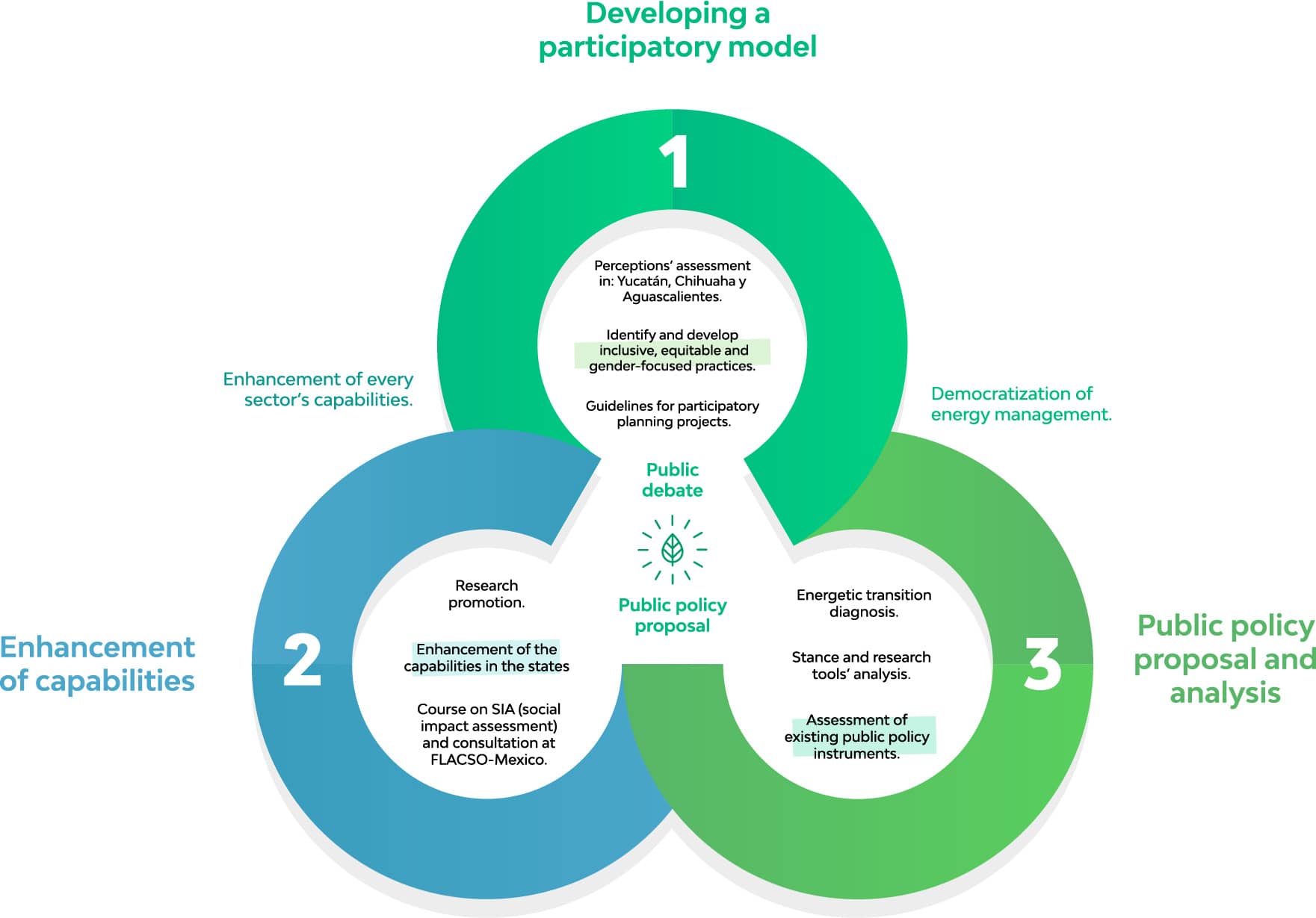Our goal
To contribute to the development of participatory, inclusive and transparent renewable energy projects.
How do we achieve it?
By incorporating the social dimension, which is the role that society has in the configuration, design, use and operation of the energy system, into the practices and capacities of the different stakeholders, and into public policy instruments used for the governance, planning and design of the energy transition.

The electricity sector in Mexico has undergone a profound transformation since the Energy Reform of 2013. The opening of the electricity market and significant reductions in renewable energy costs have made renewable energies a competitive and viable option to meet electricity demand and to move towards GHG emission reduction objectives, established in the Mexican Energy Transition Law. In this context, it is relevant to see the increase in renewable energy generation in Mexico from 2014 to 2018. During this time the electricity generation from photovoltaic and wind technology increased by 247%, from 4,204 GWh to 14,609 GWh.
However, the design and implementation of the Energy Reform has brought about the emergence of new challenges for all stakeholders in the stages of allocation, planning, execution and operation of renewable energy projects. During this process, the social dimension has not been adequately or sufficiently included in sectorial governance, in institutions, in the dynamics of certain projects and into the framework of the public policies that regulate them.
Energy infrastructure projects in general, and large-scale renewable energy projects in particular, have a differentiated impact by scale and nature, which are manifested and experienced differently by the women, men and children of the local populations, nearby and/or adjacent to the projects. These characteristics need to be understood, addressed and anticipated in order to recognize the rights of each and every one of the interested parties.
In Mexico, the business model used for the planning and development of energy policy, as well as public and private projects derived from that policy, only recognize the technical and financialneeds of the sector and of the projects. The social dimension, understood as the social impacts and the relationship with local populations, is not considered as a central element in the design of energy projects, even though this dimension determines not only the management of the territory, but also non-technical risks.
Various diagnostics prepared by academic institutions, as well the federal government, private sector companies, specialists, civil society organizations, and the analysis of the CER project, show that the problem of lack of consideration of the social dimension is present in different projects throughout the country. According to the information collected, social conflict around renewable energy has diverse causes and consequences, which must be recognized for a comprehensive analysis of the issue. Even when there is no approved narrative, attention to social impacts is increasingly present in the agendas of the various stakeholders.
- We believe that strategic energy management is possible. Management that includes projects of all scales (distributed generation, medium-scale and large-scale) and various ownership schemes to reduce GHG emissions, offer low-cost energy, reduce energy poverty and approach national energy sovereignty.
- Prior territorial and ecological planning can facilitate the successful development of inclusive and transparent renewable energy projects.
- Transparency and accountability should guide the relationship between the actors involved in the project cycle.
- We maintain that the role in projects of women and men in local populations and communities can and should change, intobeing allies, in a broad sense, with power in decision-making in their territory.
- The reduction of power asymmetries between the different actors will be fundamental to the success of their relationship.
- We believe that projects must represent opportunities for local development, ensuring the creation of value for all.
- Every process and policy should be carried out with a focus on human rights, a gender perspective, and positive conflict transformation.

